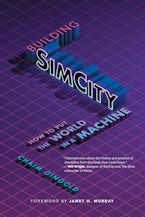A critical discussion of the experience and theory of flow (as conceptualized by Mihaly Csikszentmihalyi) in video games.
Flow—as conceptualized by the psychologist Mihaly Csikszentmihalyi—describes an experience of “being in the zone,” of intense absorption in an activity. It is a central concept in the study of video games, although often applied uncritically. In Against Flow, Braxton Soderman takes a step back and offers a critical assessment of flow's historical, theoretical, political, and ideological contexts in relation to video games. With close readings of games that implement and represent flow, Soderman not only evaluates the concept of flow in terms of video games but also presents a general critique of flow and its sibling, play.
Soderman argues that flow is a game design strategy used to extend the duration of playful consumption. Players—called flowing subjects by Soderman—are not simply experiencing the psychological state of flow; they are being positioned as media consumers in ways that promote flow's ideologies and sustain ludic capitalism. He examines flow from a range of perspectives, considering, among other things, flow as a form of coping with alienation, the commodification of flow, and the relationship of flow and reflection. Finally, Soderman calls for the design and interpretation of new architectures of critical flow in games, arguing that we must rethink standard forms of flow and embrace more diverse and inclusive forms of the flowing subject.












